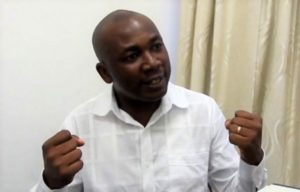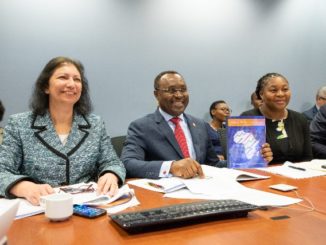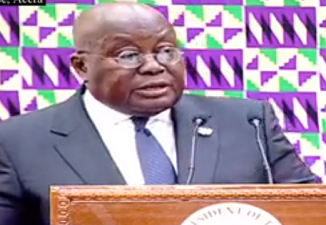A Senior Lecturer of the University of Ghana, Professor Godfred Bokpin, has urged the government to reconsider tax exemptions being given to businesses, including those in the Free Zones enclave, as the practice is costing the economy more than $2 billion annually.
According to him, the high volumes of exemptions alone could reduce Ghana’s borrowing and its subsequent debt servicing.
Delivering his inaugural lecture as a fellow of IMANI Africa, a policy think tank, in Accra yesterday, Prof. Bokpin said the exemptions over the years had been subject to abuse that did not benefit the public purse.
His lecture was on how the 2019 budget would address sustainability concerns after the IMF programme.
The deficit figures
Providing data to back his suggestion, the economist said in 2011, tax exemptions cost the nation $ 2.4 billion, representing 6.13 per cent of the country’s gross domestic product (GDP).
In 2013, the amount of tax exemptions jumped to $ 2.5 billion, constituting 5.2 per cent of the GDP, while in the same year, the government issued $750 million Eurobond at eight per cent interest.
In 2014, Ghana lost five per cent of its GDP, amounting to $ 2 billion, due to tax expenditures.
Data from the Ministry of Finance indicates that in 2016, the country lost GH¢4 billion to tax exemptions.
Over the years, successive governments have used tax exemptions presumably to help the country stay in competition for foreign direct investment, incubate new companies into maturity and create jobs.
But with the public purse shrinking by the day because of burdens, including high emoluments and debt servicing, which swallow almost all the country’s tax revenue, Prof. Bokpin said it was time to re-examine the whole idea and design exemptions that met the country’s specific needs as the current system was denying the country much revenue.
The government’s antidote
In November 2017, the Ministry of Finance announced that beginning from January 2018, companies applying for tax exemptions would do so online, as the government planned to roll out a paperless tax exemption system to block the revenue leakages that recurred with the current manual system.
The system would make use of the e-MDA portal on which the investor/company sent an application for tax exemption, along with all supporting documents which would either be accepted or rejected by the MDA.
Exemptions granted by Parliament were to be billed into the system, and when the threshold allowed was exhausted, the system would automatically block any further exemption on the item, thereby saving the country taxes and duties it would have lost through the manual system.
2019 Budget
In the 2019 budget, the government projects to spend GH¢73.4 billion in 2019, raise GH¢45.3 billion as revenue, spend GH¢19.4 billion, representing about 26.5 per cent of total expenditure on wages and salaries and GH¢18.7 billion on debt servicing.
Turning his attention to the 2018 budget, Prof. Bokpin observed that the government had a challenge because it did not have the fiscal space to fulfil all that it had promised to do.
He said while the government tax revenue over the years had been going up, wages for public sector workers had also been going up alongside the interest the country paid on its loans.
“Once you are spending so much on debt servicing, it crowds out priority spending. You can imagine what GH¢18 billion will do for us if we were not going to spend that servicing our debts”, he added.
Financing deficit
With the government planning to spend GH¢8.5 billion on capital expenditure, Prof. Bokpin said it was impressive that from 2017, government allocation to capital expenditure — infrastructure — was increasing.
“The 2018 budget mirrors reality. The feedback is that the roads are very bad and government must respond.
“ The more than GH¢14 billion deficit in the 2019 budget meant that the government would have no choice but to borrow to meet its obligations
“With all the things the government wants to do, where would the revenue come from? It is borrowing.
“This is the reality so we will borrow. If you look at the total revenue and expenditure, the difference is about GH¢14.5 billion. That alone tells you the borrowing requirements of the government. The government doesn’t need to tell you that it will borrow once you see the deficit; they will borrow because the deficit has to be financed,” he said.
IMF romance
At the presentation of the 2019 Budget, although the Minister of Finance said Ghana would not go back to the IMF for support after the expiry of the fund’s three-year extended credit facility, Prof. Bokpin said the trend pointed to the contrary, as since 1965, the country on the average went to the IMF almost every four years for one financial support or the other.
–
Graphiconline




